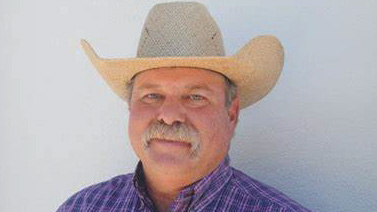
Tuesday, July 12th is the date of a Multi-County Range/Brush program. This program is being conducted by the Texas A&M AgriLife Extension Service. It will be held at the Brown County Fairgrounds located at 4206 US HWY 377 South in Brownwood. Registration will begin at 8:30am and the program at 9:00am.
Brush encroachment continues to be an expensive problem to deal with. It doesn’t take long for weeds and brush to choke out good desirable grasses forcing a reduction in stocking rates of livestock. If left unchecked, these pasture invaders can even make large areas undesirable for some wildlife.
Speakers and topics for the July 12th program include:
Dr. Morgan Treadwell – Extension Range Specialist, San Angelo
Timing of herbicide applications for weed/brush control
Herbicide application following range fires to control weed/brush
Tanner Chancelor- Corteva AgriScience Range & Pasture Specialist
Corteva herbicides for weed/brush control
Billy Campbell – Bayer Environmental Science Range & Pasture Specialist
Rezilon herbicide, Invora herbicide, Picolinic Acid Chemistry training
Scott Anderson – Pesticide laws and regulations – labels, application, record keeping, re-entry intervals, PPE, etc.
There will be a $40 registration fee payable at the door. A catered meal is included. Pre-registration is required by July 5, 2022.
This program has been approved for 5 CEUs from the Texas Department of Agriculture for TDA licensed pesticide applicators. 1 laws and regulation, 2 integrated pest management, and 2 general. This program is open to anyone interested but is limited to the first 100 participants who pre-register.
To pre-register or for more information contact the Brown County Extension Office at 325-646-0386.
***
Federal judge strikes down Texas drone law
A federal judge ruled that a Texas “Use of Unmanned Aircraft” law violates the First Amendment in a decision that could affect Texas farmer and ranchers both positively and negatively.
The lawsuit was filed by two media organizations and a journalist who claimed the law violated their First Amendment rights.
Texas A&M Agricultural Law Specialist Tiffany Dowell-Lashmet feels the ruling will affect Texas agricultural producers in different ways.
“There are two big provisions in that law,” she said. “One is what they call the surveillance provision that says there are criminal and civil penalties for anyone who uses a drone to conduct surveillance.”
The other provision makes it unlawful to fly a drone over certain facilities, like a feedlot.
The way the ruling will affect Texas farmers and ranchers depends on whether they are using drones or getting watched by one.
“On the one hand, folks that are using drones in their operations may have more protection now,” Dowell-Lashmet said. “If you are using your drone and you capture a picture of someone else on their property, there was the concern that they could bring some kind of action against you.”
That is no longer a concern now that the law has been stricken down, she said.
“On the flip side of that, if you are a landowner who is concerned about people flying drones over your property, there now is a concern because this statute offered some form of protection if someone did that,” she added.
With Texas feedlots and large dairies being targeted by anti-animal agriculture groups and news outlets, there is now a bigger concern that they can be watched by drones without any way to stop them. But Dowell-Lashmet says there are other laws that can help to protect them.
“Remember that this is just one statute,” she said. “There are other laws on the books that deal with privacy rights. But as for this statute being a protection for feedlots in Texas from having drones flying overhead, that protection is gone now.”
With the potential for more drones to fly over agricultural operations, there is the temptation to take the law into your own hands. But Dowell-Lashmet says pulling out your deer rifle should not be an option.
“The drone question I get the most deals with shooting them down,” she said. “Drones are regulated by the FAA, which makes them fall into the category of federally regulated aircraft.”
Penalties for shooting down federally regulated aircraft are high.
“I know they are annoying and may cause a problem but getting the 30-06 out is never going to be the solution to that problem,” she said.